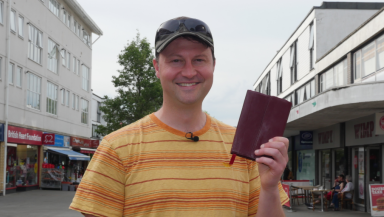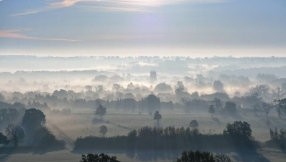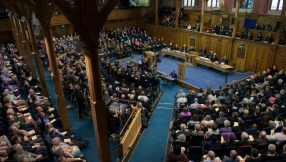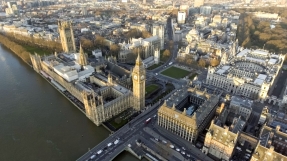
A council in Hampshire has agreed to withdraw attempts to impose a court injunction restricting Christian street preaching and other activities in public spaces.
The injunction would have restricted street preaching, religious discussions, prayer, singing and distributing leaflets.
Rushmoor Borough Council backed down after a strong backlash from local Christian groups, faith leaders and Conservative councillors who argued that the measures were a serious infringement on religious freedom and free speech.
The council said the steps were necessary to prevent "anti-social behaviour by a small number of individuals" in Aldershot and Farnborough, and address complaints from members of the public who had apparently experienced alarm and distress.
Local street preachers criticised the council for failing to consult with them and accused it of ignoring the positive social impact of their outreach, especially among homeless and other vulnerable people.
They were supported by the Christian Legal Centre (CLC), which said that the restrictions would have set a dangerous precedent and resulted in the criminalisation of the Christian faith in public spaces.
The council agreed to change tack after meeting with local Christian leaders on 23 April.
During the meeting, the Christian leaders gave assurances that "aggressive" street preaching by a few individuals was being addressed, and agreed to work with the council on a new voluntary code of conduct.
The council acknowledged concerns about its proposals being too broad and agreed to withdraw the injunction but said it would still consider complaints on a case by case basis and may pursue targeted legal action if necessary.
A further meeting has now been planned between the council and local Christians in an attempt to find "constructive and lasting solutions".
Chairman of the Rushmoor Faith Leaders Forum, Bishop Malcolm Cummins, said: “We’re relieved that our discussions with the council have proved constructive. We now look forward to working closely together to build even stronger relationships.”
One local preacher and trained evangelist, Jamie Broadey, said he felt "complete unbelief" when he first read the draft proposals, saying that they would have overturned activities "which Christians have done freely in this country for centuries".“However, following the meeting, it seemed that the council have taken onboard our concerns. We welcome the news that the council has withdrawn its application, but it is highly concerning that they made this attempt to criminalise the Christian faith in the first instance," he said.
Another street preacher, Sally McGuinness, wants an apology from the council.
“I think the council has failed to see the good that Christians bring through proactive outreach," she said. “If this had not been challenged and stopped in its tracks now, we have no doubts that the Christian faith would be criminalised in Aldershot and Farnborough. This would have been terrible for Christian freedoms and freedom in general in this country.“We are still awaiting an apology from the council and assurances that nothing like this will ever happen again."
CLC chief executive Andrea Williams said the council had made a "serious error of judgement".
“Rushmoor Borough Council’s attempt to silence Christian Street preachers represents a significant and deeply troubling attack on freedom of speech and religious expression," she said. “This attempted injunction was not merely an overreach - it was a direct assault on the liberties that underpin our democratic society," she said.
"Freedom of speech—and especially religious expression—is not a privilege handed out at the discretion of local authorities. It is a fundamental right, protected by law, and hard-won through centuries of struggle.“We urge Christians to remain vigilant and prayerful, and to continue supporting efforts to ensure that the public square remains open to the gospel and to the free exchange of ideas.”
The Leader of Rushmoor Borough Council, Councillor Gareth Williams, said: “I’m pleased that, following our discussions with the local Christian community and faith leaders, we have been able to address this very sensitive issue and agree a way forward that balances the rights to freedom of worship and expression with the interests of all town centre users.”
Local Conservative Councillor Gareth Lyon said the council had made "absolutely the right decision" and that the U-turn was a "great outcome".
“The positive engagement from local churches and Christian groups which the council has listened to, will reassure people that Rushmoor is a place where freedom of speech and conscience is valued and where partnership works," he said.
Lib Dem Councillor Craig Card said: “It was important for the council to sit down and work this out with the local faith communities so legal action could be avoided - I’m glad that an alternative path has been found.”













